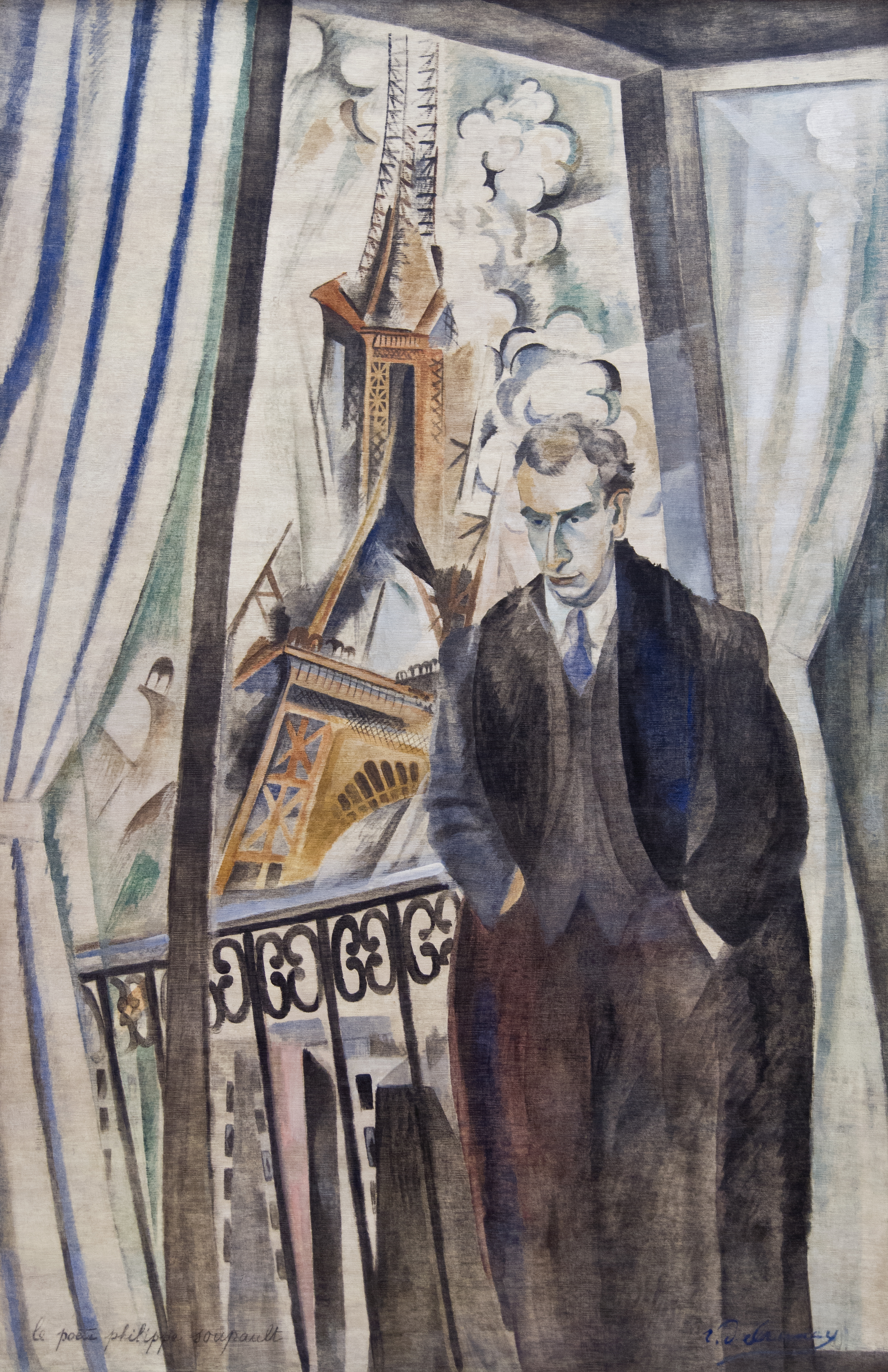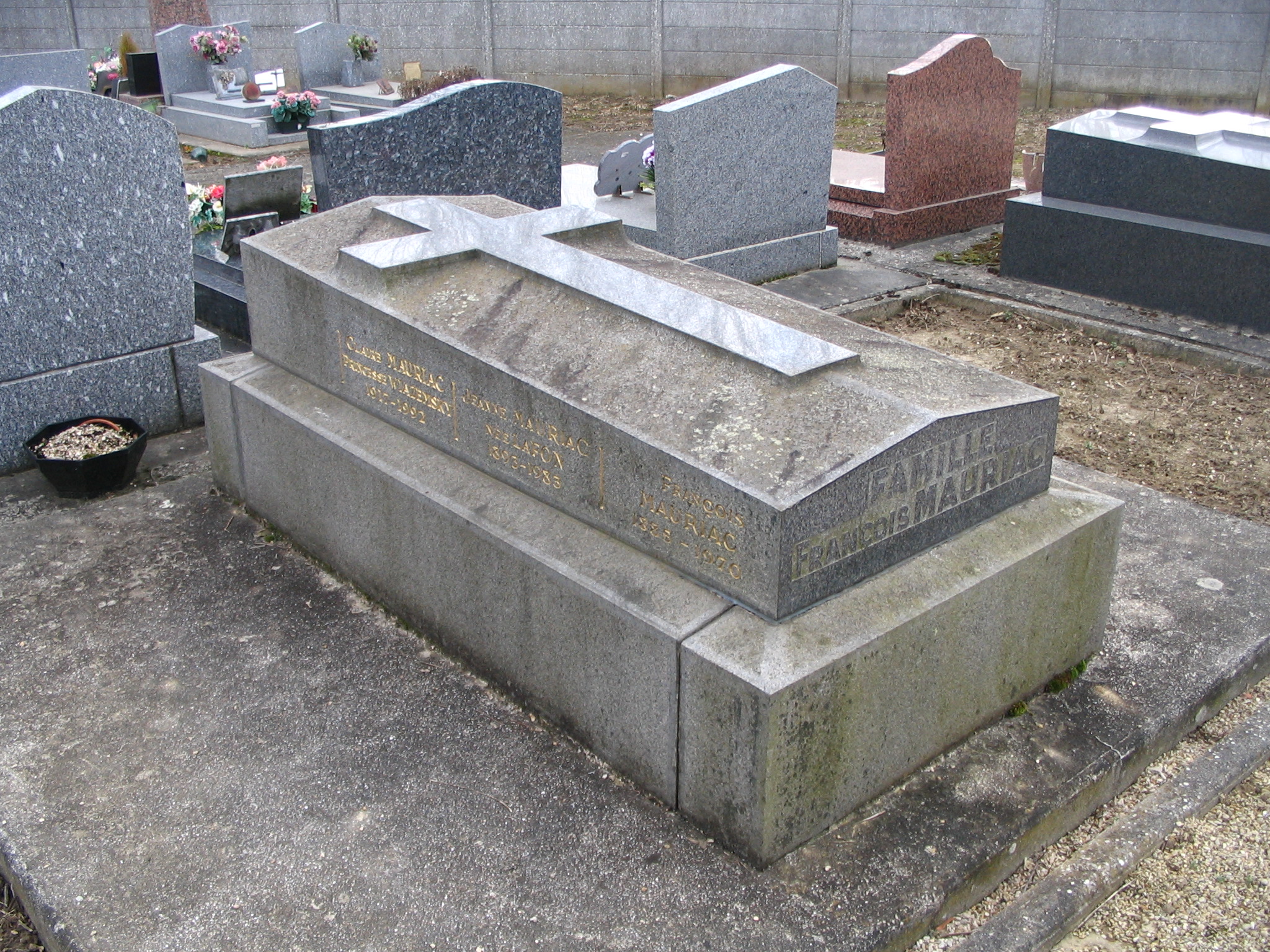|
Bernard Groethuysen
Bernard Groethuysen (9 September 1880 – 17 September 1946) was a French writer and philosopher. His works, which transgressed the confines of history and sociology, concern the history of mentalities and representations and the interpretation of the experience of the world. In the interwar period, he made the works of Hölderlin and Kafka and the sociology of Germany available in France. Biography Bernard Groethuysen was the second child of five. His mother Olga Groloff was part of a family of Russian immigrants. His father, Philipp Groethuysen, was a Dutch physician with a practice in Berlin. The elder Groethuysen suffered from psychiatric ailments, and after 1885 lived in the sanitorium in Baden-Baden where he died in 1900. It was here that the younger Groethuysen completed his primary and secondary studies. He went on to study philosophy and history at the Ludwig-Maximilians-Universität in Munich. Continuing work on Leibniz, Groethuysen went to Paris in autumn 1904 wher ... [...More Info...] [...Related Items...] OR: [Wikipedia] [Google] [Baidu] |
Interwar Period
In the history of the 20th century, the interwar period lasted from 11 November 1918 to 1 September 1939 (20 years, 9 months, 21 days), the end of the World War I, First World War to the beginning of the World War II, Second World War. The interwar period was relatively short, yet featured many significant social, political, and economic changes throughout the world. Petroleum-based energy production and associated mechanisation led to the prosperous Roaring Twenties, a time of both social mobility and economic mobility for the middle class. Automobiles, electric lighting, radio, and more became common among populations in the developed world. The indulgences of the era subsequently were followed by the Great Depression, an unprecedented worldwide economic downturn that severely damaged many of the world's largest economies. Politically, the era coincided with the rise of communism, starting in Russia with the October Revolution and Russian Civil War, at the end of World War I ... [...More Info...] [...Related Items...] OR: [Wikipedia] [Google] [Baidu] |
Pontigny Abbey
Pontigny Abbey (french: Abbaye de Pontigny), the church of which in recent decades has also been the cathedral of the Mission de France, otherwise the Territorial Prelature of Pontigny (french: Cathédrale-abbatiale de Notre-Dame-de-l’Assomption à Pontigny), was a Cistercian monastery located in Pontigny on the River Serein, in the present diocese of Sens and department of Yonne, Burgundy, France. Founded in 1114, it was the second of the four great daughter houses of Cîteaux Abbey. It was suppressed in 1791 in the French Revolution and destroyed except for the church. In 1843 it was re-founded as a community of the Fathers of St. Edmund. In 1909 it passed into private ownership. In 1941 it became the mother house of the Mission de France, a territorial prelature. History Hildebert (or Ansius), a canon of Auxerre, petitioned Abbot Stephen Harding of Cîteaux to found a monastery in a place he had selected for this purpose. Accordingly, in 1114 Saint Stephen sent twelve m ... [...More Info...] [...Related Items...] OR: [Wikipedia] [Google] [Baidu] |
Franz Kafka
Franz Kafka (3 July 1883 – 3 June 1924) was a German-speaking Bohemian novelist and short-story writer, widely regarded as one of the major figures of 20th-century literature. His work fuses elements of realism and the fantastic. It typically features isolated protagonists facing bizarre or surrealistic predicaments and incomprehensible socio-bureaucratic powers. It has been interpreted as exploring themes of alienation, existential anxiety, guilt, and absurdity. His best known works include the short story "The Metamorphosis" and novels ''The Trial'' and '' The Castle''. The term ''Kafkaesque'' has entered English to describe absurd situations, like those depicted in his writing. Kafka was born into a middle-class German-speaking Czech Jewish family in Prague, the capital of the Kingdom of Bohemia, then part of the Austro-Hungarian Empire, today the capital of the Czech Republic. He trained as a lawyer and after completing his legal education was employed full-ti ... [...More Info...] [...Related Items...] OR: [Wikipedia] [Google] [Baidu] |
Johann Wolfgang Von Goethe
Johann Wolfgang von Goethe (28 August 1749 – 22 March 1832) was a German poet, playwright, novelist, scientist, statesman, theatre director, and critic. His works include plays, poetry, literature, and aesthetic criticism, as well as treatises on botany, anatomy, and colour. He is widely regarded as the greatest and most influential writer in the German language, his work having a profound and wide-ranging influence on Western literary, political, and philosophical thought from the late 18th century to the present day.. Goethe took up residence in Weimar in November 1775 following the success of his first novel, ''The Sorrows of Young Werther'' (1774). He was ennobled by the Duke of Saxe-Weimar, Karl August, in 1782. Goethe was an early participant in the ''Sturm und Drang'' literary movement. During his first ten years in Weimar, Goethe became a member of the Duke's privy council (1776–1785), sat on the war and highway commissions, oversaw the reopening of silver min ... [...More Info...] [...Related Items...] OR: [Wikipedia] [Google] [Baidu] |
Nazism
Nazism ( ; german: Nazismus), the common name in English for National Socialism (german: Nationalsozialismus, ), is the far-right totalitarian political ideology and practices associated with Adolf Hitler and the Nazi Party (NSDAP) in Nazi Germany. During Hitler's rise to power in 1930s Europe, it was frequently referred to as Hitlerism (german: Hitlerfaschismus). The later related term "neo-Nazism" is applied to other far-right groups with similar ideas which formed after the Second World War. Nazism is a form of fascism, with disdain for liberal democracy and the parliamentary system. It incorporates a dictatorship, fervent antisemitism, anti-communism, scientific racism, and the use of eugenics into its creed. Its extreme nationalism originated in pan-Germanism and the ethno-nationalist '' Völkisch'' movement which had been a prominent aspect of German nationalism since the late 19th century, and it was strongly influenced by the paramilitary groups that emerged af ... [...More Info...] [...Related Items...] OR: [Wikipedia] [Google] [Baidu] |
Éditions Gallimard
Éditions Gallimard (), formerly Éditions de la Nouvelle Revue Française (1911–1919) and Librairie Gallimard (1919–1961), is one of the leading French book publishers. In 2003 it and its subsidiaries published 1,418 titles. Founded by Gaston Gallimard in 1911, the publisher is now majority-owned by his grandson Antoine Gallimard. Éditions Gallimard is a subsidiary of Groupe Madrigall, the third largest French publishing group. History The publisher was founded on 31 May 1911 in Paris by Gaston Gallimard, André Gide, and Jean Schlumberger as ''Les Éditions de la Nouvelle Revue Française'' (NRF). From its 31 May 1911 founding until June 1919, Nouvelle Revue Française published one hundred titles including ''La Jeune Parque'' by Paul Valéry. NRF published the second volume of '' In Search of Lost Time'', In the Shadow of Young Girls in Flower, which became the first Prix Goncourt-awarded book published by the company. Nouvelle Revue Française adopted the name "Li ... [...More Info...] [...Related Items...] OR: [Wikipedia] [Google] [Baidu] |
Philippe Soupault
Philippe Soupault (2 August 1897 – 12 March 1990) was a French writer and poet, novelist, critic, and political activist. He was active in Dadaism and later was instrumental in founding the Surrealist movement with André Breton. Soupault initiated the periodical ''Littérature'' together with writers Breton and Louis Aragon in Paris in 1919, which, for many, marks the beginnings of Surrealism. The first book of automatic writing, '' Les Champs magnétiques'' (1920), was co-authored by Soupault and Breton. Biography In 1922 he was asked to reinvent the literary magazine ''Les Écrits nouveaux'', for which he also created an editorial board. In 1927 Soupault, with the help of his then wife Marie-Louise, translated William Blake's ''Songs of Innocence and Experience'' into French. The next year, Soupault authored a monograph on Blake, arguing the poet was a "genius" whose work anticipated the Surrealist movement in literature. In 1933 at a reception at the Soviet Embassy in ... [...More Info...] [...Related Items...] OR: [Wikipedia] [Google] [Baidu] |
Gabriel Marcel
Gabriel Honoré Marcel (7 December 1889 – 8 October 1973) was a French philosopher, playwright, music critic and leading Christian existentialist. The author of over a dozen books and at least thirty plays, Marcel's work focused on the modern individual's struggle in a technologically dehumanizing society. Though often regarded as the first French existentialist, he dissociated himself from figures such as Jean-Paul Sartre, preferring the term ''philosophy of existence'' or ''neo-Socrateanism'' to define his own thought. ''The Mystery of Being'' is a well-known two-volume work authored by Marcel. Early life and education Marcel was born on 7 December 1889 in Paris, France. His mother Laure Meyer, who was Jewish, died when he was young and he was brought up by his aunt and father, Henry Marcel. When he was eight he moved for a year where his father was minister plenipotentiary. Marcel completed his DES thesis (', roughly equivalent to an MA thesis) and obtained the '' agré ... [...More Info...] [...Related Items...] OR: [Wikipedia] [Google] [Baidu] |
André Maurois
André Maurois (; born Émile Salomon Wilhelm Herzog; 26 July 1885 – 9 October 1967) was a French author. Biography Maurois was born on 26 July 1885 in Elbeuf and educated at the Lycée Pierre Corneille in Rouen, both in Normandy. A member of the Javal family, Maurois was the son of Ernest Herzog, a Jewish textile manufacturer, and his wife Alice Lévy-Rueff. His family had fled Alsace after the Franco-Prussian War of 1870–71 and took refuge in Elbeuf, where they owned a woollen mill. As noted by Maurois, the family brought their entire Alsatian workforce with them to the relocated mill, for which Maurois' grandfather was admitted to the Legion of Honour for having "saved a French industry". This family background is reflected in Maurois' ''Bernard Quesnay'' - the story of a young World War I veteran with artistic and intellectual inclinations who is drawn, much against his will, to work as a director in his grandfather's textile mills - a character clearly having many auto ... [...More Info...] [...Related Items...] OR: [Wikipedia] [Google] [Baidu] |
François Mauriac
François Charles Mauriac (, oc, Francés Carles Mauriac; 11 October 1885 – 1 September 1970) was a French novelist, dramatist, critic, poet, and journalist, a member of the'' Académie française'' (from 1933), and laureate of the Nobel Prize in Literature (1952). He was awarded the Grand Cross of the ''Légion d'honneur'' in 1958. He was a lifelong Catholic. Biography François Charles Mauriac was born in Bordeaux, France. He studied literature at the University of Bordeaux, graduating in 1905, after which he moved to Paris to prepare for postgraduate study at the École des Chartes. On 1 June 1933 he was elected a member of the ''Académie française'', succeeding Eugène Brieux. A former Action française supporter, he turned to the left during the Spanish Civil War, criticizing the Catholic Church for its support of Franco. After the fall of France to the Axis during the Second World War, he briefly supported the collaborationist régime of Marshal Pétain, but joined ... [...More Info...] [...Related Items...] OR: [Wikipedia] [Google] [Baidu] |





